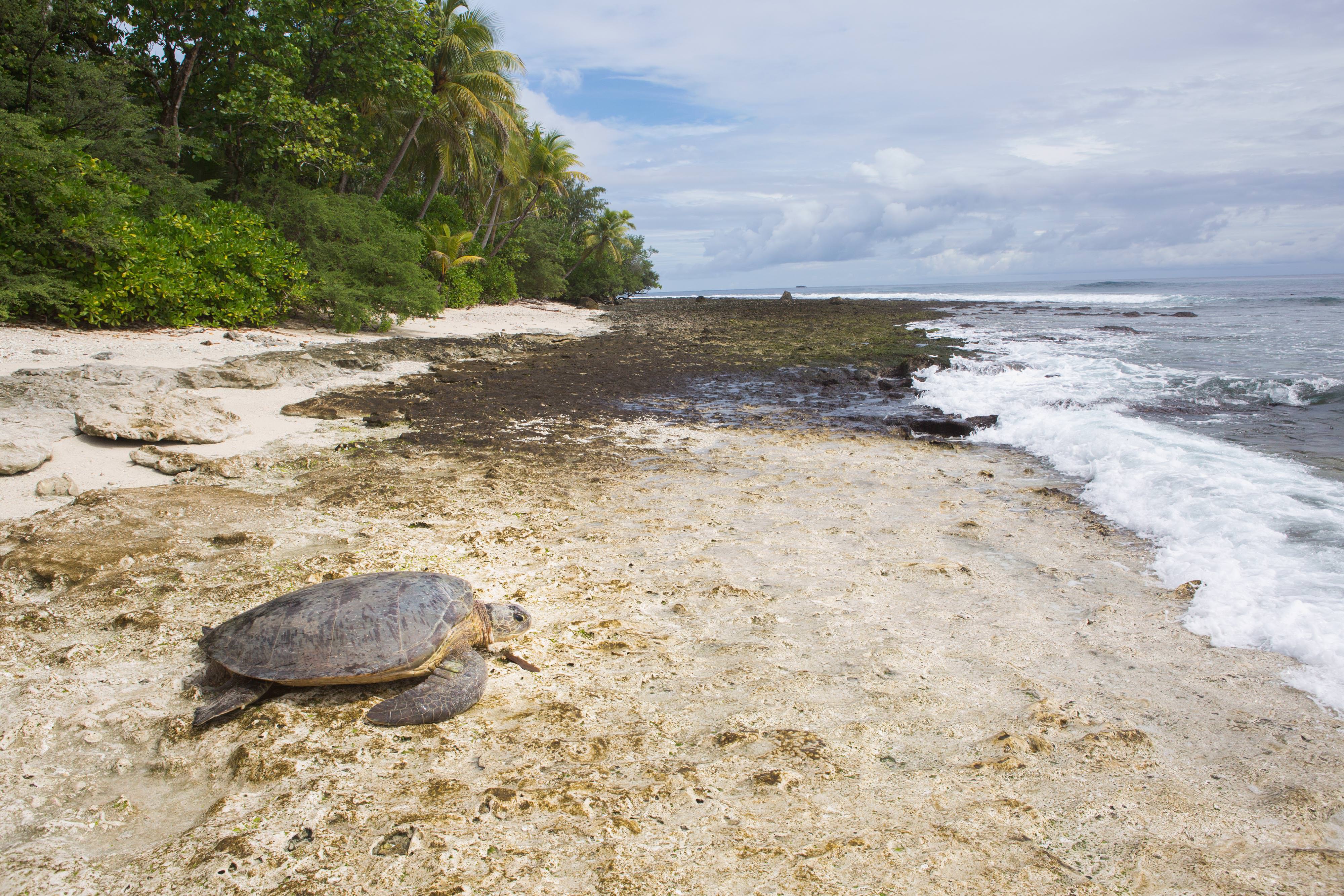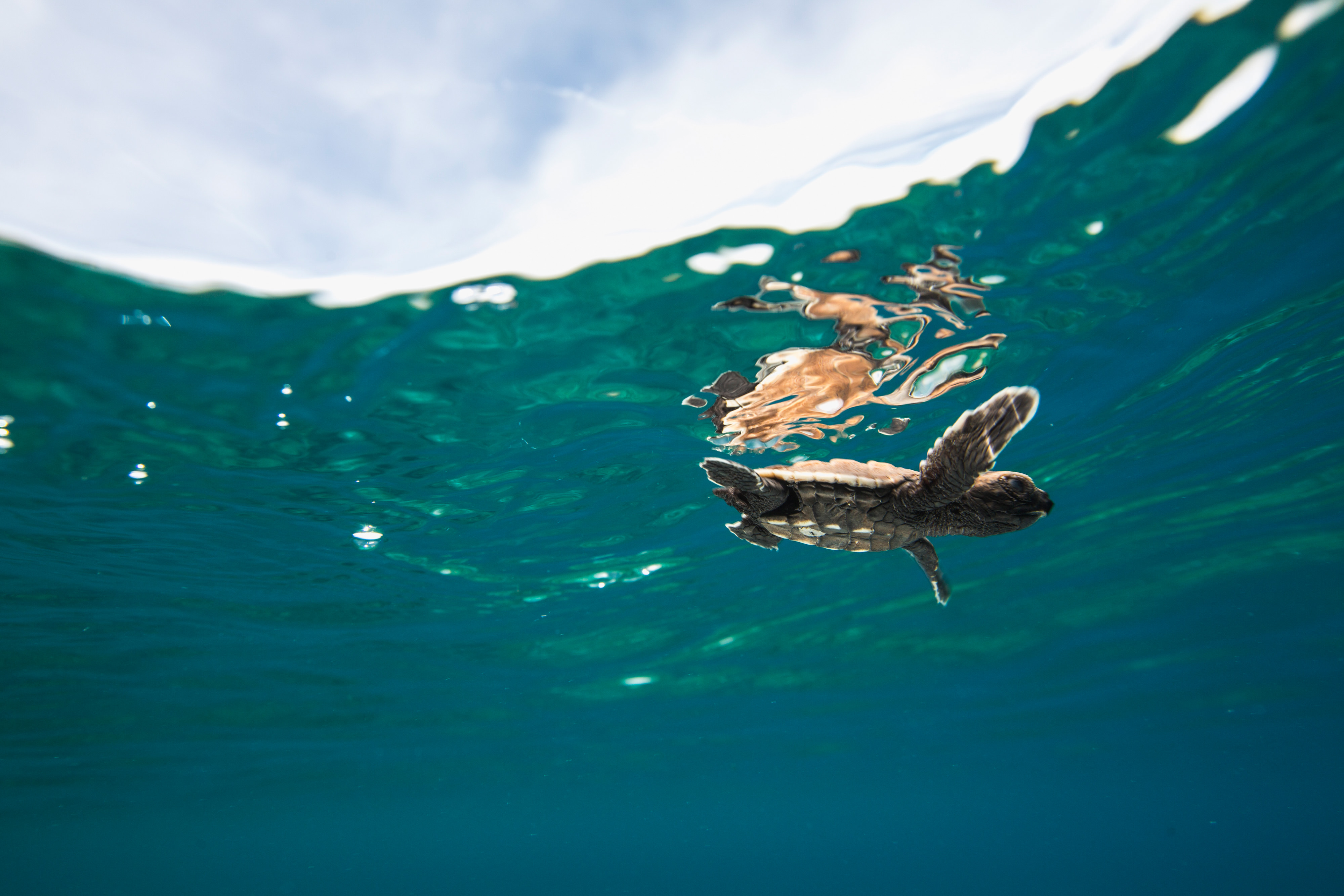Stories in Papua New Guinea & the Solomon Islands
Communities Supporting Sea Turtles
Local communities in the Arnavon Islands are working together to preserve nature and their way of life.
Solomon Islands form a volcanic chain of over 900 islands, stretching nearly 1,000 miles across the South Pacific. Near the western end of this chain lie the Arnavon Islands, home to the largest Hawksbill turtle rookery in the South Pacific. Following a tumultuous history marked by arson, conflict and poaching, conservation efforts on these islands are now a beacon of hope for critically endangered hawksbill turtles and an inspiring example of community-led conservation.
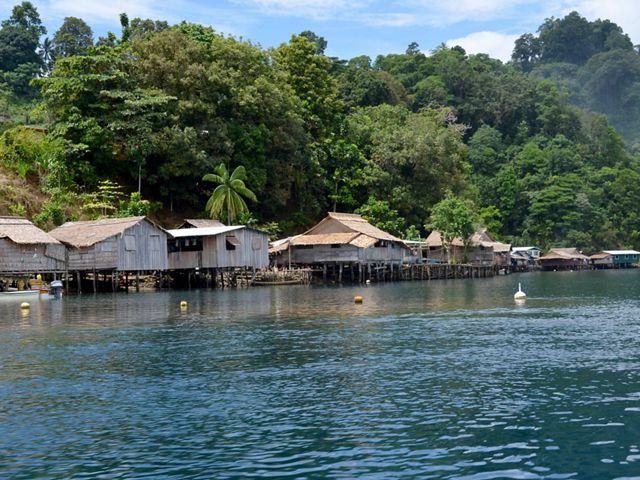
Turning the Tides for Turtles
Historically, hawksbill turtles have faced significant challenges such as habitat degradation, bycatch from commercial fishing and illegal poaching. By the early 1990s, the hawksbill population in the Arnavon Islands, along with the fish populations on surrounding reefs, had been severely depleted. To combat this decline, TNC has been working with local communities for the past 30 years to support turtle and marine conservation.
Collecting information about sea turtles is critical to their long-term survival. Simply put, conservation efforts won't work without data: where, when and how often they nest, how many hatchlings clamber from sand to sea and how many nests are washed away by rising tides. Thanks to dedicated community-focused conservation efforts, such as training community rangers to patrol nesting beaches from illegal poaching and using satellite tracking to understand migration patterns, the hawksbill turtle population is now rebounding. We have also embarked on a new satellite tagging study of the critically endangered Western Pacific leatherbacks as well.
Arnavon Community Marine Park
Community-Led Conservation
-
1995
The Arnavon Community Area was established
-
150+
Covers over 150 sq kilometers
-
2017
Declared country's first protected marine park
-
3
Led by 3 communities from Kia, Wagina and Katupika
Establishing the Arnavon Marine Community Park
Since 1992, The Nature Conservancy has been working the three communities of Katupika, Kia and Wagina to protect the Arnavons. After years of facilitating discussions between communities and government, in 1995 the Arnavons Community Marine Conservation Area was established. And in 2017, the area was officially declared Solomon Islands' first national marine park as the Arnavon Marine Community Park.
Today, men and women of these three communities work together to manage the Arnavon Community Marine Park by:
- Protecting and monitoring nesting sea turtles and their eggs,
- Sharing knowledge of the significance of the marine park,
- Conducting research and collecting data on hawksbills, green turtles and leatherbacks, and
- Ensuring marine park rules and regulations are followed.
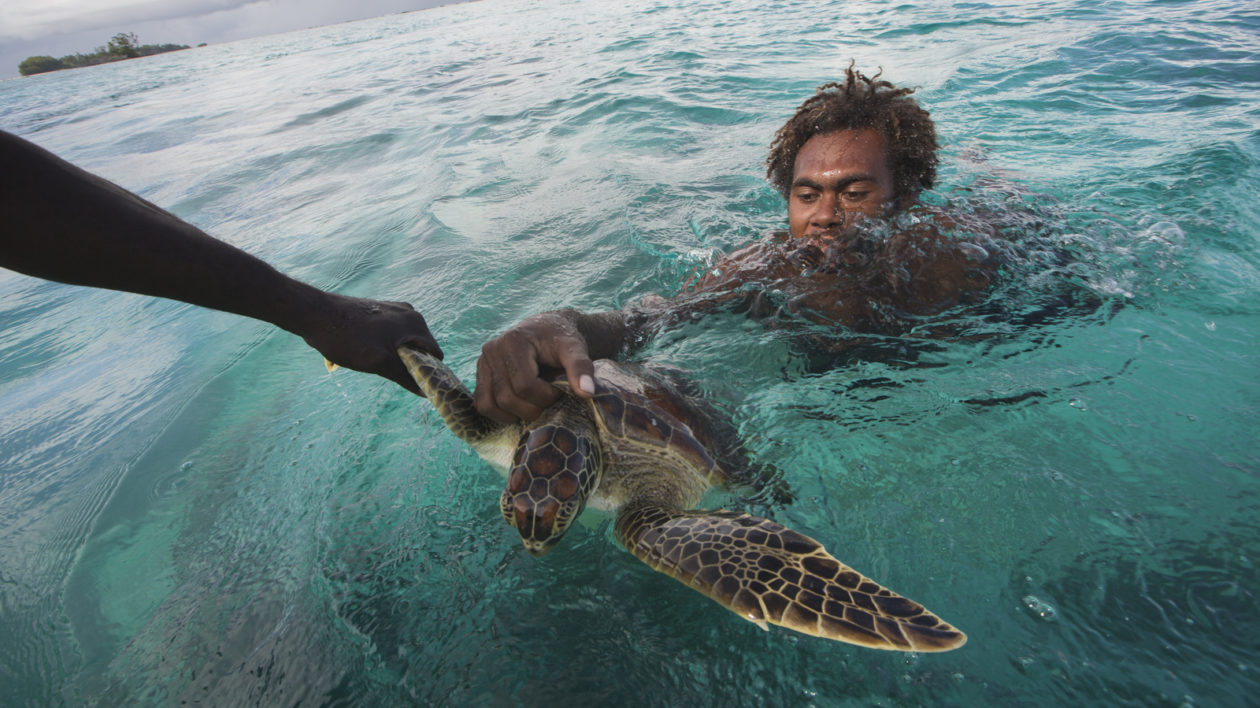
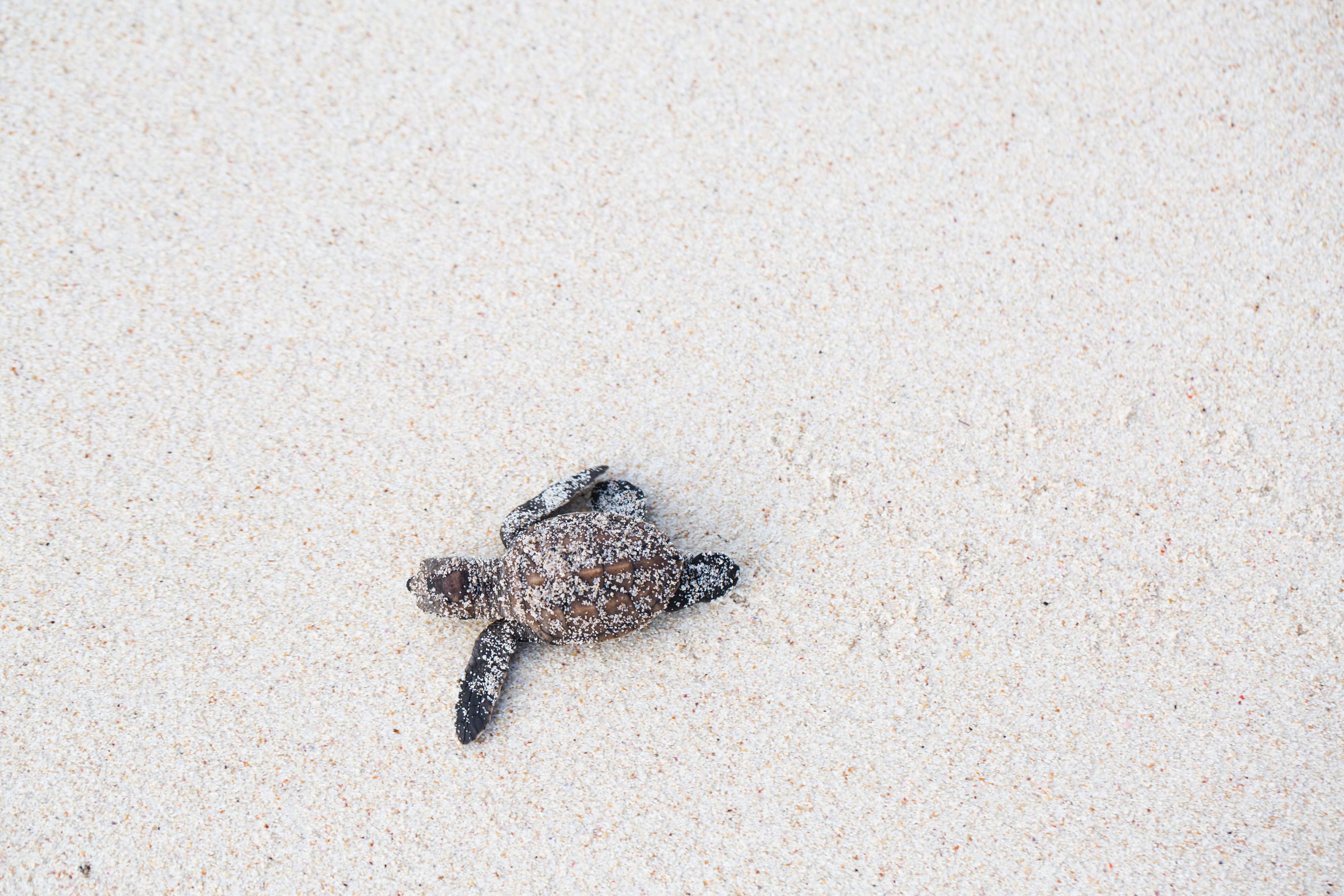
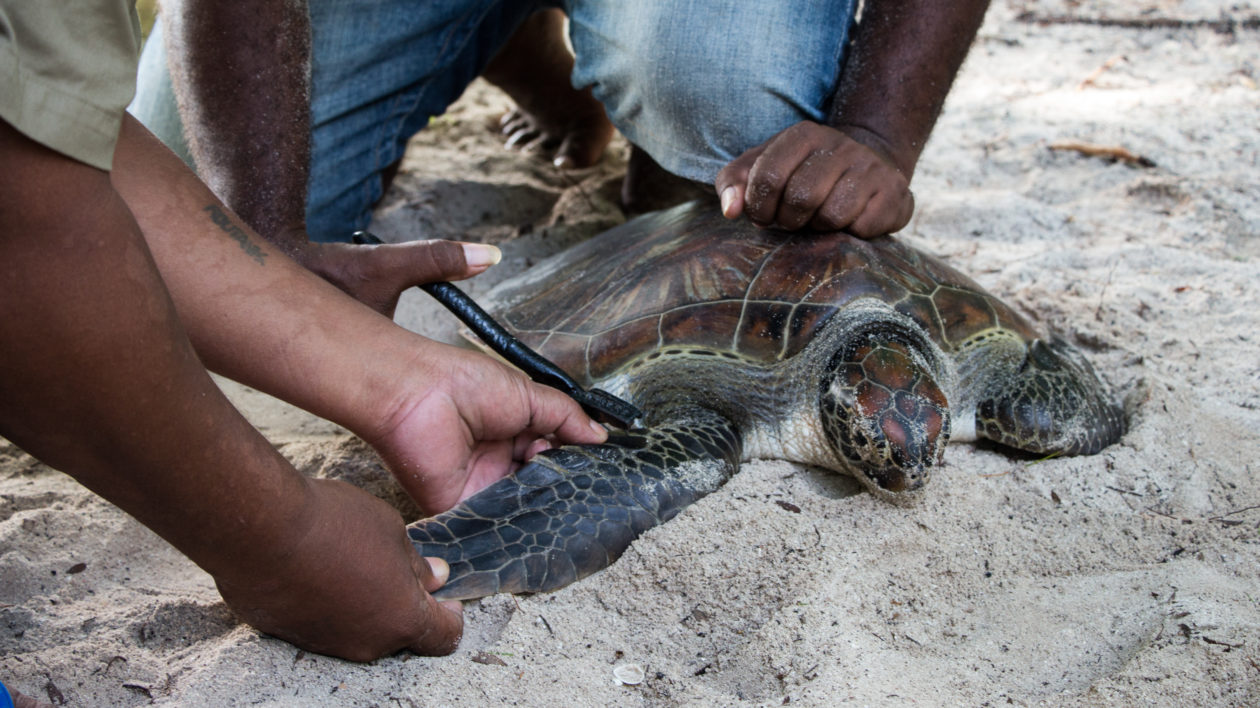
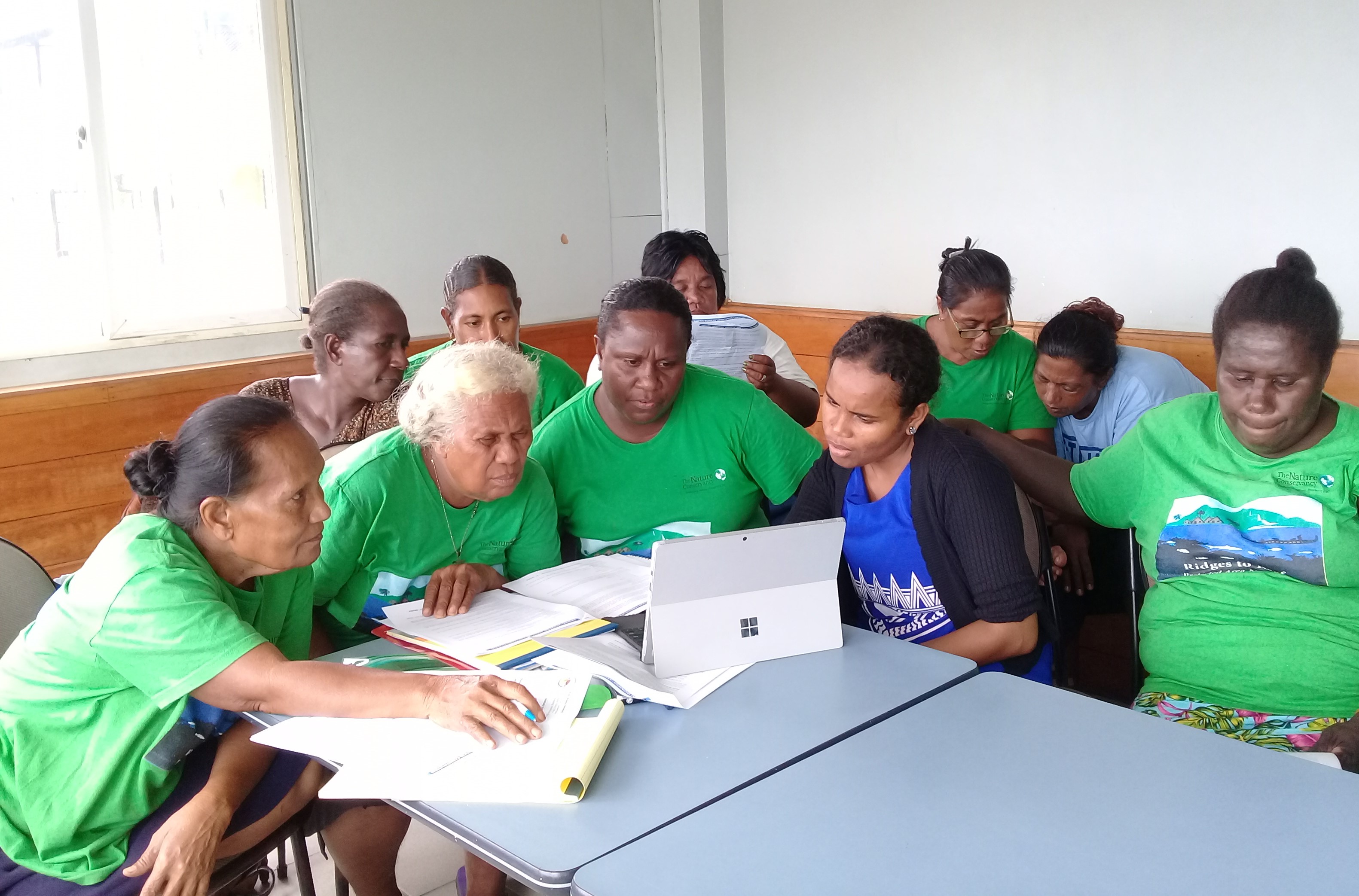
KAWAKI Women's Group
With the support of The Nature Conservancy, women from the three communities of Katupika, Wagina and Kia established the women's group KAWAKI. KAWAKI's vision is to unite women in conservation, community and culture to create a better future. The women's group work together to provide lifelong benefits to women and girls through training and skills development and seeks to create oportunities for local people, especially children. Women from KAWAKI are also joining in the trainings to become rangers, a role traditionally held only by men.
Community-led Ecotourism
KAWAKI is spearheading efforts to develop a small-scale, low-volume ecotourism venture on the Arnavons. Enticed by the island's turtles and coral reefs, vistor numbers have grown steadily. KAWAKI and other members of the communities hope to create a sustainable ecotourism model that will deliver better economic opportunities while ensuring the long-term protection of this remarkable place.
Stay in the Loop
